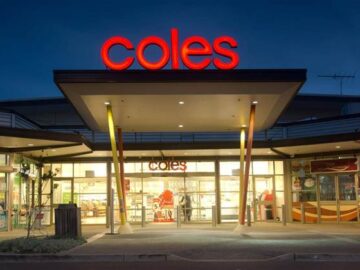Located in the Northwest of Tasmania, Devonport City Council’s transformation project, ‘Living City’ is one of the largest urban renewal projects undertaken in the state and has seen a multitude of work undertaken including AI chatbots to uplift its staff experience.
Jeffrey Griffith, deputy general manager at the council, told Digital Nation its modernisation work, which kicked off around 2018, has reshaped the way council operates.
“We’ve gone from a council that had very little technology, that was very complex and disconnected, not used well by the employees and providing a poor experience to the community,” he said.
“We’ve gone from 100 percent desktops to 100 percent laptops with all services in the cloud. We don’t host any infrastructure on site. Our employees from the time of the pandemic and the lockdowns were able to continue to operating, serving the customers, continue to deliver good quality services to the community, take phone calls as if there had been no impact.
“That was a result of having gone purely mobile and in the cloud,” he said.
From here, council employees began to embrace change and “recognise the positive impact” that transformation was having on the council.
Griffith explained changes included upgrades to its ERP system and better digital features.
“We see digital transformation has no end,” he said. “It’s just part of a continuous improvement.”
The council re-platformed its ERP and also adopted Microsoft 365.
“We’ve driven many initiatives, leveraging different, technologies to support the community, such as providing online electronic forms,” Griffith said. “We wanted to be able to transact online.”
The council also being one of the first to have chatbot on its website. “We were one of the first councils to have a chatbot,” Griffith said.
Griffith said council’s work has had a positive impact on the community.
“It’s important that councils recognise, make the investment in skills, leadership and resources to modernise and transform,” he said.
“The day will come where it’s no longer a choice. We wanted to be on the front foot and lead that journey as opposed to being on the back foot and being forced into it.”
Smart city
An IoT rollout has also helped council create better community experiences.
“Over the past three years, we’ve been heavily focused on implementing a ‘smart city’ initiative.
“We’ve rolled out many sensors that can be placed on any device anywhere to collect data. We’ve placed them on council’s bins around the community. We’ve placed them within councils, barbecue shelters, in the river, in stormwater drains, in vaccine fridges.
“The list just goes on.”
Griffith said a council bin can now inform staff when it’s 75 percent full and “raise its own work order”, enabling teams to arrange a collection before it overflows.
Sensors in various waterways also allow the council to be alerted to potential flood waters or “more appropriately size our stormwater drains”.
Council is also in the early stages of delivering a new $60 million indoor sports stadium,
“We see that being a ‘smart’ stadium. You would have the ability to see what parking is available, electronically or online smart initiatives that tell you what seats might be available within the stadium, or to receive information such as specials offered by the kiosk.”
AI in customer service
Meanwhile, the council’s AI work has allowed residents to engage in ways that suits their needs.
“We implemented an artificial intelligence call recording solution and this solution records, every call that comes in and goes out to our customer service team,” Griffith said.
“We did that to capture analytics on customer sentiment. It measures seven different emotions in those phone calls.
“We can provide feedback to our community about the service we’re delivering. It gives us opportunities to work on improvement.”
Phone calls to council are declining, with more transactions performed on self-service channels.
As a result, council staff have been able to refocus on “higher value activities that better support the community and less on low value admin activities.”
“We’ve heard through our councillors that … Devonport council is running like a business and I take that as a bit of a compliment.
“It’s to say that we care about quality customer service delivery and effectively, and containing the cost of services we deliver to the community all of these systems help us deliver that.”
Devonport’s AI vision
Moving forward, Griffith said AI will continue to play a large role.
“It’s all about continuous improvement, and continuous improvement is about leveraging technology to better support and Improve processes.
“Looking at over the next few years, we believe that with the change seen in the past six years, the next five will be even greater, largely impacted by artificial intelligence.
“Last year we were the first council in Tasmania that hired an artificial intelligence and automation officer.
“We were the first council to have a policy for the use of AI shared with many councils, across the state.”
He said his vision includes introducing solutions such as cloud-based call recording Dubber, to capture all of its knowledge and conversations.
“Our chatbot and artificial intelligence will be able to integrate and tap into that incredible wealth of knowledge, meaning will become much more systemised, much improved in terms of customer service delivery through conversational artificial intelligence.”



